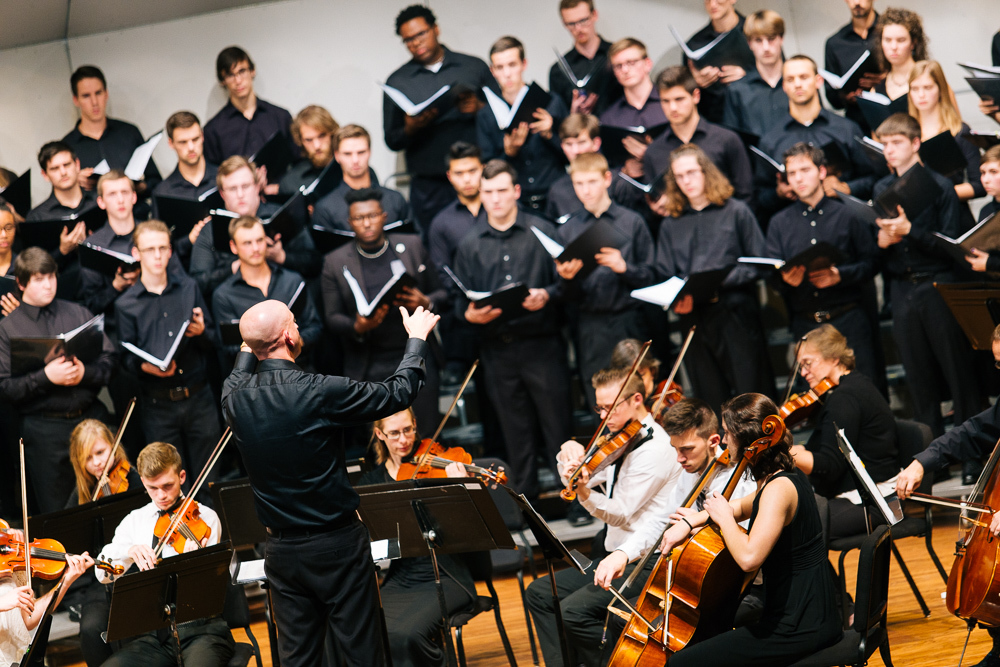The fall 2018 music gala at Eastern Mennonite University will highlight the university’s many ensembles – and a “lullaby” requiem.
The annual event is 7-9 p.m. on Saturday, Nov. 17, in Lehman Auditorium, with a freewill offering to benefit the music scholarship fund.
The first half of the concert will feature the EMU jazz and wind ensembles conducted by Bob Curry and the orchestra conducted by Benjamin Bergey. In the second half, Professor Ryan Keebaugh will conduct the combined choirs and orchestra in a performance of Gabriel Fauré’s Requiem Mass.
The evening ranks among concerts at EMU as “one of the biggies,” said Professor James Richardson, music department chair.
“It’s a uniquely combined effort,” he said. “You’ll see faculty performing along with students – part of the ethos of our department’s sense of community.” That community includes music majors but also other students, as “many of the people that make up our ensembles are doing it for their own edification – and we like that,” he said. “We have open doors.”
The mass text has been set by many composers including Mozart and Verdi, but Fauré’s version is unique, said Richardson, who will be a baritone soloist alongside junior performance major and soprano Kiara Norman.
“It’s a lullaby for death,” he said. “That might sound morose, but that term is very much meant to imply just the opposite.”
Fauré, an organist and therefore constantly around funeral music, excluded from the mass parts that “really had to do with the anxiety or fear or unpleasantness associated with death,” Richardson said. “It’s a very serene, tranquil approach to one’s end.”
Instead of the movement about the wrath of God, Fauré included a Pie Jesu section. He also used different text for the final movement.
As Fauré noted, “It is thus that I see death: as a happy deliverance, an aspiration towards happiness above, rather than as a painful experience.”
“In my estimation,” Keebaugh said, “It’s all about love, and what’s accomplished here during one’s lifetime. It’s more of a Requiem for the living who are coping with death.”
